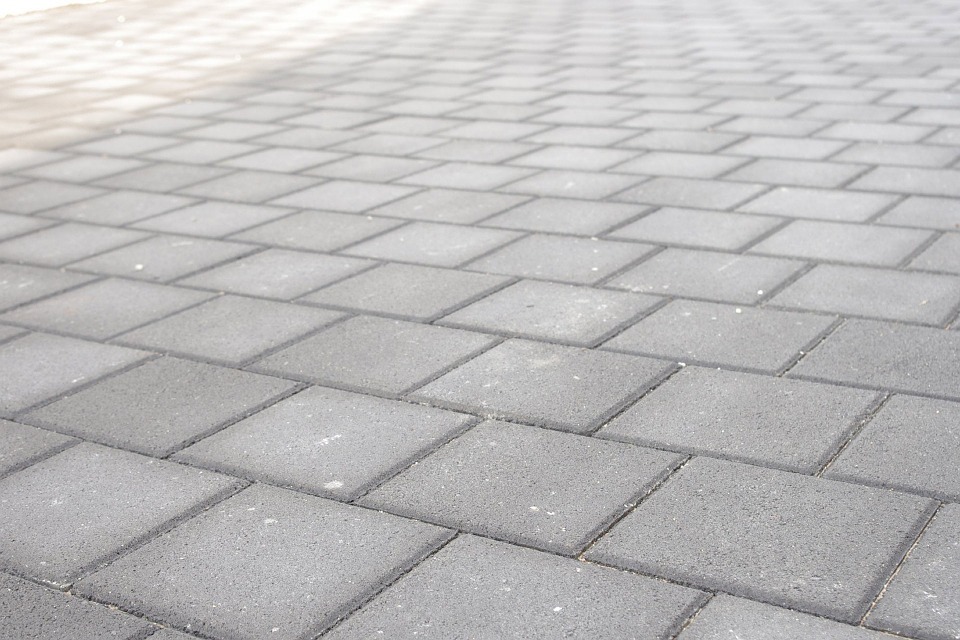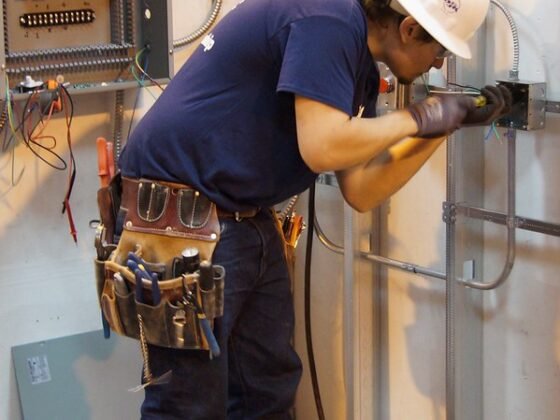Table of Contents Show
Block paving is the most preferred and flexible option for surfacing a driveway.
Although it is available in several materials, the most common types used are concrete and clay.
Usually, the interlocking paver blocks are for outdoor surface laying. It is an economical paving option, easy to pave, and available in various patterns, textures, colors, shapes, and sizes. Click for more info on block paving in detail.

Benefits of Interlocking Block Paving
1. Easy to Maintain
Block pavements require lesser maintenance when compared to asphalt and concrete pavements.
Paver blocks do not require polishing on their upper surface and any repainting in the future.
You need to wash the paved driveway regularly with any soap or surface cleaner and water. It helps in giving your pavement a fresh and bright look for a long time.
2. Highly Durable and Long-Lasting
The expected life of a block paved driveway is around 20 years, so it is considered a durable option.
If properly installed and laid professionally, they barely develop any cracks as well.
Block pavers are a preferred choice for both commercial and residential applications because of their longevity.
Block pavements can bear rough loads of continuous vehicle traffic and require low maintenance.
As the paver blocks can withstand heavy pressure and loads, it is a popular choice across many docks and airports.
Read Also:
3. Highly Flexible
Block pavers are highly flexible because of their availability in different shapes, colors, patterns, and textures as per your requirements.
Pavers can be easily interlocked with each other, sometimes with a block of different shapes and patterns too.
The variety in the thickness, color, and designs of paver blocks are an ideal option for areas like parking, pool deck, sidewalk, driveway, and patios.
4. An Eco-Friendly Paving Option
Paver blocks are undoubtedly more eco-friendly when compared to solid surfaces like asphalt and concrete.
Solid surfaces usually drain chemicals and water, which pollutes the surrounding water sources.
Block pavements prevent the gathering and flooding of rainwater. They also allow having better drainage for driveways and patios.
You can also use the interlocking permeable blocks to pave the block pavements for planting vegetation in every grid.
These paver types can re-use stormwater and send them back into the ground and not onto the streets.
5. Safe to Use
Block pavers are considered the safest pavement option for outdoor usage.
Usually, the top surface of the pavement gets oily because of the continuous passing of vehicles over it. Yet, the pavement driveways are safe to walk and drive over it.
Block pavers are anti-skid and are slip-resistant. So even during rainy seasons or on wet blocks, there are lesser chances of slipping and are easy to walk on.
6. Weather Friendly
Block pavers are suitable for all weather conditions, be it monsoon, summer, or winter.
For cold weather conditions and areas having frequent snowfalls, concrete pavers are a good option.
Paver blocks are resistant to chemicals, oils, and frost, and hence they are a preferred choice in industrial settings.
A liquid or electric snow melting setup is easy to install below the block pavers, so these are ideal for colder areas.
Snow melting setups prevent accidents and also minimize any possibility of slipping and skidding.
It effectively reduces the cost related to cleaning snow and the damage affected by freezing conditions.
7. Easy to Install
Block pavements have an easier installation process and do not need any equipment and machinery.
The turnover time for laying an average driveway is also not more than 3 or 4 days.
Block pavements are ready for use immediately after installation for both walking and vehicle traffic.
No filling or mortar is needed to install a block pavement. Although block pavements are easy to install, you must hire an expert for laying block pavers for a neat and organized look.
8. Simple Repairs
The best advantage of paver blocks is that if even a single block is stained or even damaged, it can be easily removed and changed with a new paver block.
The repairs required to block pavements are simple when compared to asphalt and concrete pavements.
Also, no heavy equipment is needed to repair and replace a damaged block.
Anyone can replace a damaged block with the help of online videos, and hence skilled labor is also not required.
9. Cost-Effective
The rising demand for paver blocks has resulted in its mass production. It has made the price of these pavement blocks quite affordable.
Also, the cost associated with maintaining block pavers is lower when compared to other paving options.
Within the different types of paver blocks, concrete is much more cost-effective than stone and clay paver blocks.
Block pavements are very durable and long-lasting and do not require frequent changes and repairs. It makes them cost-friendly in the longer run.
10. Ease of Availability
You can get a variety of paver blocks from building material stores or can directly order from manufacturers. You can also explore a range of paver blocks online.
Paver Blocks a Durable and Low Maintenance Pavement Option
After going through the benefits of block pavements, we can say that paver blocks are a durable and low-maintenance paving option.
With its easy availability in varied patterns, sizes, shapes, and colors, you can enhance the appeal of your home with an appealing driveway pattern.
Block pavements undoubtedly add to the durability and beauty of your driveway at low maintenance and cost.









